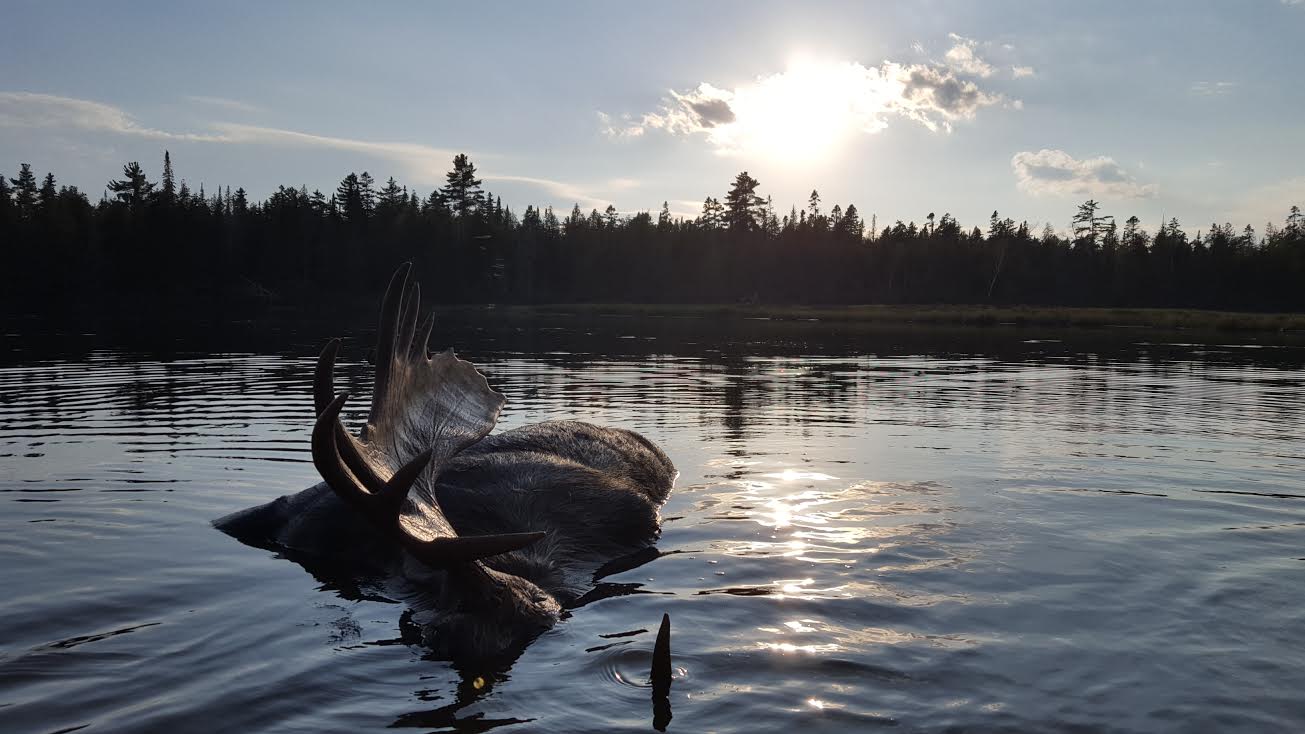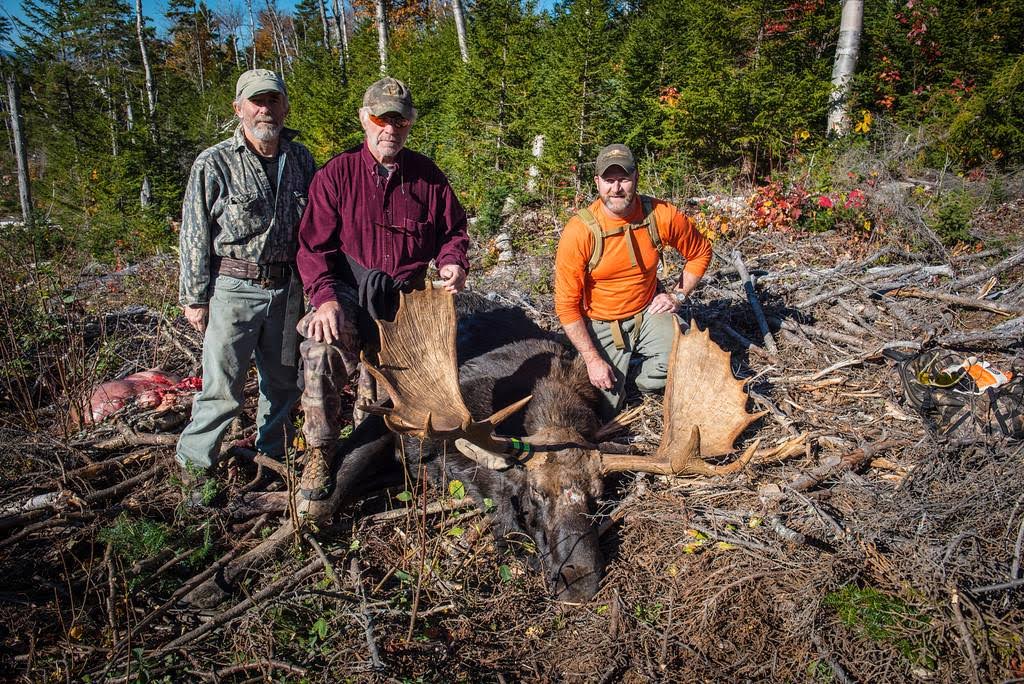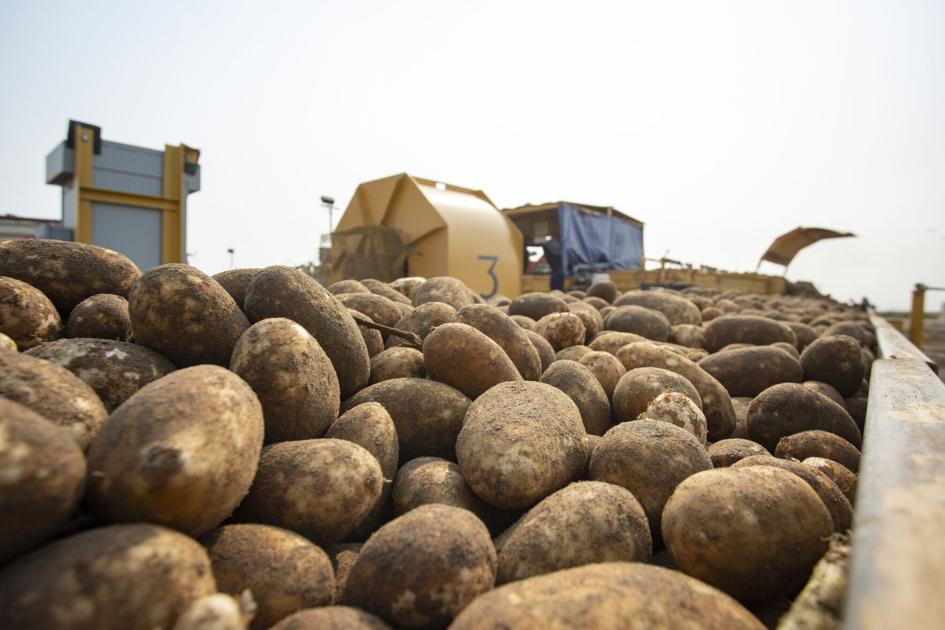

The majestic moose has long been native to Maine, but due to unrestricted hunting and conversion of forests to farmland, their numbers dipped sufficiently so that Maine ended moose hunting entirely in 1935. Between 1935 and 1980, it was illegal to hunt moose in Maine. Thanks to regenerating forests and hunting restrictions, the moose herd rebounded to the point where biologists again decided it was appropriate in 1980 to have a moose hunt, limited to 700 permits that first year. Since then, the moose hunt has become a Maine tradition. While the moose have become cagier, they remain plentiful and success rates remain above 70 percent, among the best in the world.
In the early days of the hunt, from 1980 through the mid-1990s, many trophy bulls were taken by riding the miles of logging roads in the north Maine woods and scouting the clear cuts right from the truck. As the years went on, this method became less productive and hunters after trophies began to scout the back woods and lesser-known twitch roads. Some hunters, out for the traditional experience, hunted exclusively off road and many hired Maine Guides to make the most of the experience. One such guide, Roger Lambert of Strong, started Maine Guide Service and soon developed a reputation for taking large bulls using traditional stalk and call hunting techniques. Roger took a few moments to answer some questions I had for this article.
Roger, there are all kinds of animals to hunt in Maine besides moose. deer, bear, turkeys and small game. What was it about the moose that made you decide to center your guide service around that animal?
Hunting is a very personal experience, and it is distinct for different people. Some people hunt for the beauty of the great outdoors, or to escape the rat race for a few hours or a few days. For others, it’s a primal opportunity to earn your own food the way our ancestors always did. For me, the experience of having a 1,500-pound bull moose responding to your call and rushing to you across woods or swamp creates an adrenaline rush like no other. That’s my personal experience, now, I’ll put my guide hat on. Over the years Maine Guide Service has given multiple families, individuals and groups some of the best days of their lives. From planning the trip, to active scouting, on into spike camp then through the actual hunt and, hopefully, the harvesting of a quality animal. The ability to share the experience with other sportsmen and women is what makes each fall moose hunt a world class experience. Take all of that and surround yourselves in the mountains of Maine during foliage season and life is grand.
What is your favorite type of moose hunting, and how would you define a successful hunt?
A successful hunt is all about the experience and camaraderie. Something about hanging out at spike camp after the hunt, sharing grub and stories followed by the best night of sleep ever, only to get up and do it again- that for me defines a successful moose hunt. Of course, harvesting a trophy animal adds to the experience and provides “bragging rights” to the successful hunter.

Is moose meat good to eat?
Yes! It is milder than beef and not gamey at all. Moose meat has good grain, and is used for steaks, sausage, burgers, roasts and mincemeat. There may be no better food in the world than a moose neck roast, slow cooked in its own juices with your favorite spices. An average Maine moose provides about 350 pounds of local, free range protein that will feed a family of four for two years! Think about this. Maine hunters average about 2,000 moose a year. At 350 pounds per animal, that equates to 350 tons of high protein low fat nutrition per year, or 3,500 tons over the last 10 years. Not only does that feed people, it reduces the amount to commercially produced protein, which may not be procured in a manner that everyone approves of or is great for the environment. In addition to all this, hunters help keep the moose herd in healthy balance using harvest numbers scientifically set by state biologists working for Maine’s Department of Inland Fisheries and Wildlife. Great experience, great nutrition and based on solid science makes for a tough to beat experience you can feel good about.
Ok Roger, in your book “The Great Maine Moose Hunt” you tell how you were fascinated by moose calling and learned from some excellent mentors. Now, your reputation as a moose calling expert goes beyond the hunt. I’ve seen and heard you on TV and the radio as you try to help others get started and explain the joy and satisfaction of a quality hunt. But is it true that you facilitated an event that is in the Guinness Book of World Records? Can you tell me a little about that?
Sure. On June 8 at the Skowhegan Moose Festival, I instructed then directed a crowd of over 2,000 people to participate in a simultaneous moose call. It took a lot of planning and we had to have systems to establish, document and verify exactly how many people participated. In the end, we had 1,054 documented moose callers, which is a world record. Not only was it a lot of fun, but everyone that was in the stands that day holds it as a treasured memory- which harkens right back to the reasons we hunt.
***
Moose hunting in Maine is available by permit only, and through a drawing system. You must apply online by May 13.
For more information on Maine Moose Hunting Moose Permit: Hunting & Trapping: Maine Dept of Inland Fisheries and Wildlife
Link to the book: The Great Maine Moose Hunt – a must have for camp coffee tables everywhere.

March 29, 2021 at 06:34PM
https://dailybulldog.com/features/fresh-air-fun-moose-hunting-in-maine/
Fresh Air Fun: Moose hunting in Maine – Daily Bulldog - Daily Bulldog
https://news.google.com/search?q=fresh&hl=en-US&gl=US&ceid=US:en


No comments:
Post a Comment